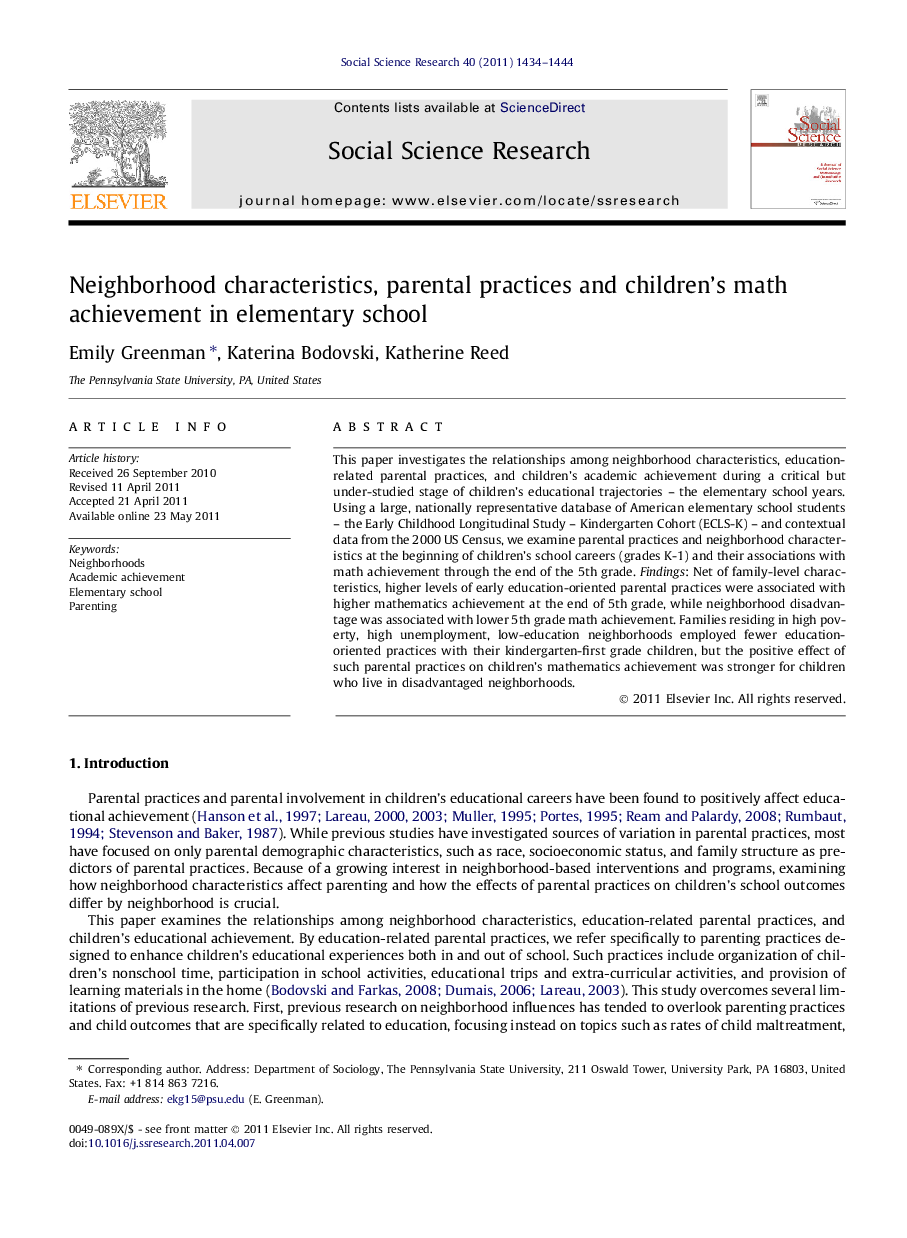| Article ID | Journal | Published Year | Pages | File Type |
|---|---|---|---|---|
| 956099 | Social Science Research | 2011 | 11 Pages |
This paper investigates the relationships among neighborhood characteristics, education-related parental practices, and children’s academic achievement during a critical but under-studied stage of children’s educational trajectories – the elementary school years. Using a large, nationally representative database of American elementary school students – the Early Childhood Longitudinal Study – Kindergarten Cohort (ECLS-K) – and contextual data from the 2000 US Census, we examine parental practices and neighborhood characteristics at the beginning of children’s school careers (grades K-1) and their associations with math achievement through the end of the 5th grade. Findings: Net of family-level characteristics, higher levels of early education-oriented parental practices were associated with higher mathematics achievement at the end of 5th grade, while neighborhood disadvantage was associated with lower 5th grade math achievement. Families residing in high poverty, high unemployment, low-education neighborhoods employed fewer education-oriented practices with their kindergarten-first grade children, but the positive effect of such parental practices on children’s mathematics achievement was stronger for children who live in disadvantaged neighborhoods.
► We model relationships among neighborhoods, parenting and school achievement. ► Positive parenting practices in 1st grade promote 5th grade math achievement. ► Disadvantaged neighborhood contexts in 1st grade reduce 5th grade math achievement. ► Positive parenting practices have a stronger effect in disadvantaged neighborhoods.
